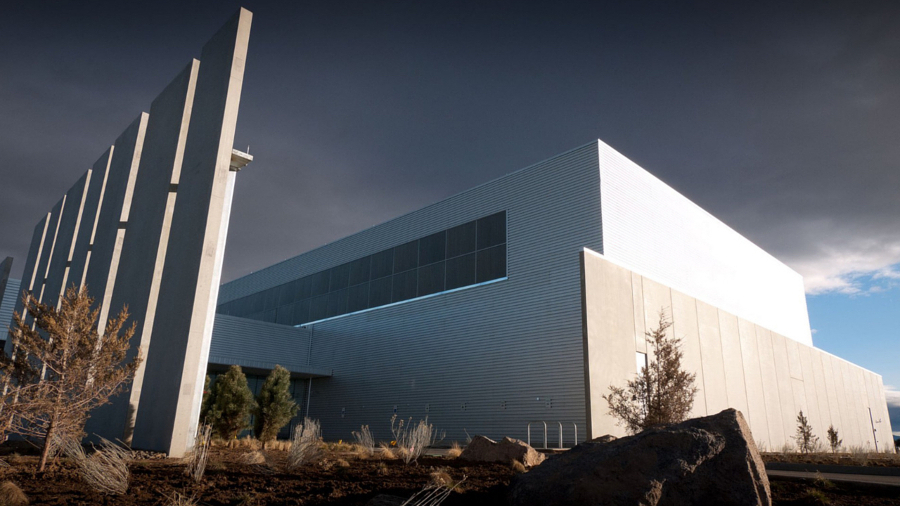The biggest threats to the internet
It's massively important, but is the net safe?

Sign up for breaking news, reviews, opinion, top tech deals, and more.
You are now subscribed
Your newsletter sign-up was successful
With over seven billion people on the planet and approximately 40% of them online, the internet is one of the most important resources to protect, but is it completely protected? We've all heard about bugs like Shellshock and the 512k router problem, but are there other menaces that could bring down the worldwide web?
512k routers nearing their limit
"While there are extreme scenarios like natural disasters and terrorist attacks that can cause disruption to the web, it is actually far more commonplace to see the internet fall foul due to shortcomings with routine maintenance and operations, such as hardware upgrades," says Mike Palladino, director of IP infrastructure and operations at internet hosting company Internap in Atlanta, US. Palladino is talking about widely-deployed, older routers hitting their default 512k routing table limit, a problem that has this year seen websites and networks knocked down.

At around 500,000 routes – a figure that's increasing by around 1,000 routes per week – the growth of the global internet routing table shows no signs of slowing. "It's putting many organisations on a collision course with network instability over the coming months and years as millions of legacy routers hit their physical limits," thinks Palladino. "What makes the problem even more challenging is that companies don't want the headache of fully migrating to IPv6, so they are trying to squeeze as much IPv4 out of the remaining allocations as possible, which is only adding to the inflation of the routing table."
Many companies are getting caught off guard, Palladino believes, and smaller enterprises in particular could learn some very painful lessons.
Government censorship
This is the real baddie. "Some of the largest instances of internet outages weren't caused by natural disasters or terrorist attacks, but rather government censorship," says Brian Chappell, Director, Technical Services EMEAI & APAC at the Leeds office of BeyondTrust.
There are theoretical threats – such as the Kremlin's plans to take control of the .ru domain and take Russia off the global internet during an 'emergency' – and there are real problems caused by governments, such as the 'great firewall' in China. The latter's latest effort is Green Dam, a piece of web censorship software that will soon be pre-installed inside every computer sold in China.

That, and Edward Snowden's NSA online surveillance revelations, are mere asides in the fight against governments who think it is their right to switch the internet on and off. Censorship by the Chinese government was thought to be behind an internet outage in January that severed access to the web for hundreds of millions of people, while governments in both Libya and Egypt effectively banned the internet during the Arab Spring uprisings of 2011.
Sign up to the TechRadar Pro newsletter to get all the top news, opinion, features and guidance your business needs to succeed!
And who can forget the almost comical stance of Turkish Prime Minister Recep Tayyip Erdogan, who called social media "the worst menace to society" before banning it in April? Luckily, the country's constitutional court overturned the ban after two weeks. However, the ban had an unexpected consequence. "When the Turkish prime minister banned Twitter, tweets about the ban and from Turkey increased significantly," says Dinah Alobeid at the New York office of analyst company Brandwatch.
It might be interrupted by earthquakes, hurricanes, ageing hardware or banned by power-crazy governments, but the internet consistently does one thing very well – it always fights back.
- 1
- 2
Current page: Introduction, routers and government censorship
Next Page Disasters, security flaws and network outagesJamie is a freelance tech, travel and space journalist based in the UK. He’s been writing regularly for Techradar since it was launched in 2008 and also writes regularly for Forbes, The Telegraph, the South China Morning Post, Sky & Telescope and the Sky At Night magazine as well as other Future titles T3, Digital Camera World, All About Space and Space.com. He also edits two of his own websites, TravGear.com and WhenIsTheNextEclipse.com that reflect his obsession with travel gear and solar eclipse travel. He is the author of A Stargazing Program For Beginners (Springer, 2015),
